Introduction to the basic knowledge of Yunnan Fine Coffee Bean varieties description of hand-made taste of Yunnan small-grain coffee
China is the hometown of tea, but coffee has been grown in China for a long time. It is hard to imagine that as early as a hundred years ago, in the depths of the mountains of Yunnan, drinking Western-style coffee was as daily as drinking oriental soya-bean milk. the rich aroma of coffee has haunted the fire pond of every household in this small mountain village for more than a century. Coffee comes from abroad, as an "imported product", people will feel that coastal cities are the earliest places to spread coffee in China, but on the contrary. Yunnan, in the southwest and inland, was the first to encounter the fragrant mellow, which originated in the distant African continent.
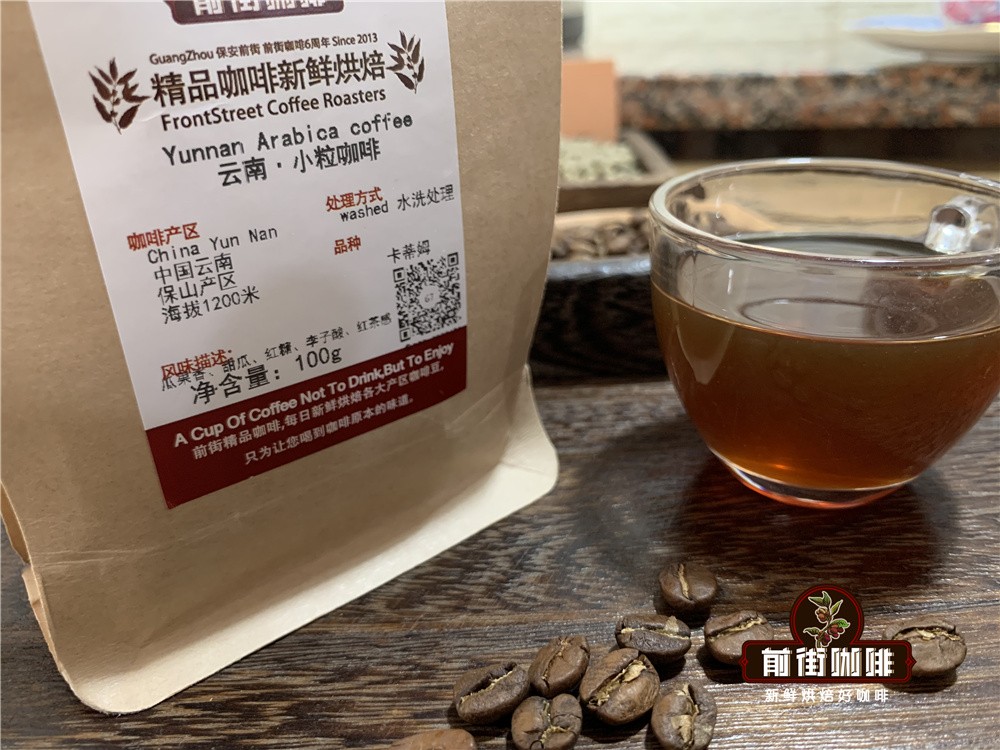
With the love of coffee, more and more friends pursue the pleasure of making coffee at home. Coffee as one of the most popular drinks in the world, coffee is full of mellow every moment of life, always reminiscent of leisure and romantic situations, whether at home, or in the office, or a variety of social occasions, people are tasting coffee. It is gradually associated with fashion, modern life, work and leisure. Every coffee lover has his or her own preference when choosing coffee.
The history of Yunnan coffee can be traced back to 1892 when a French missionary brought coffee to Yunnan from abroad and successfully planted it in a valley in Zhukula Village, Binchuan County, Yunnan Province. among the tens of thousands of coffee trees in the village, there are 24 over 100 years old and 1325 over 70 years old. Zhukula coffee is known as the "living fossil" of Chinese coffee.
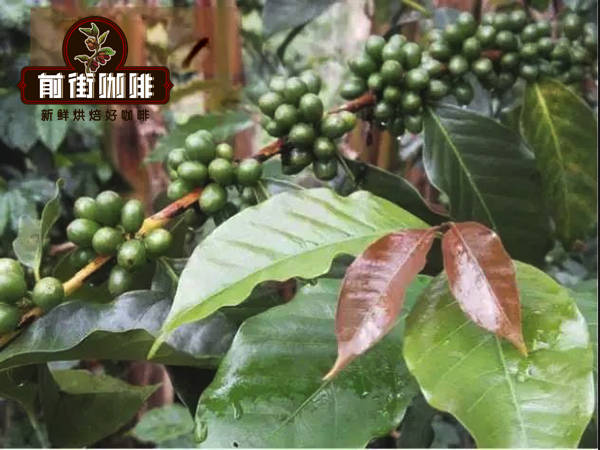
The history of coffee cultivation in Yunnan can be traced back to 1904. Tian Deneng, a French missionary, brought coffee (iron pickup) into Yunnan from Vietnam and successfully planted it in Zhugula Village, Binchuan County, Yunnan Province. this is the beginning of Yunnan coffee, commonly known as small seed coffee, commonly known as Yunnan small grain coffee. Small coffee refers to Arabica coffee beans, because its coffee beans are small, also known as small fruit coffee, Robusta coffee is called medium fruit coffee, Liberica belongs to large fruit coffee. Morphological features: small trees or large shrubs, plant height 5-8 meters. Base usually much branched, old branches gray-white. Nodes inflated, young branches glabrous. Leaves thinly leathery-ovate-lanceolate or lanceolate, apex long acuminate, base cuneate or slightly obtuse, entire or shallowly wavy, both surfaces glabrous. Cymes several clustered in leaf axils, Corolla white, fragrant. When ripe, berries are broadly oval, red, 1.2 × 1.6 cm long, and seeds 0.8-1.0 cm long. The florescence is from March to April.
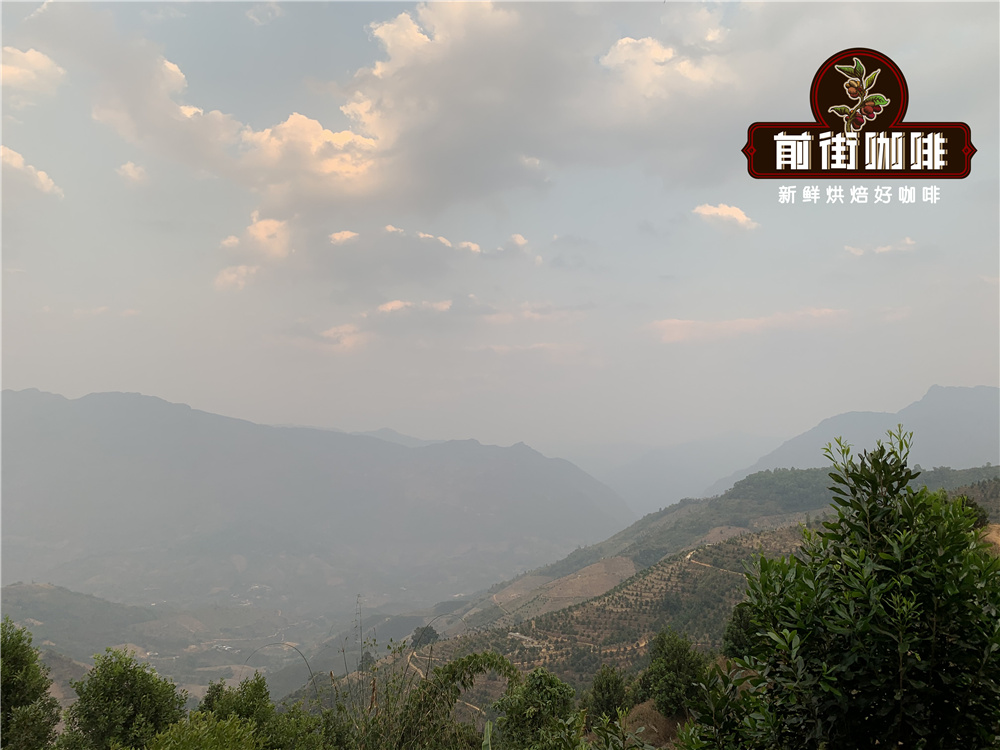
There are no four seasons in Yunnan, only dry season and rainy season, and the same is true in most coffee producing areas, which is the root cause of the use of tanning in some producing areas. June is the beginning of the rainy season in the producing areas, and it will rain for the next three or four months, which is the most favorable time for growing coffee. Only when seedlings are planted at this time and moistened by Rain Water for a few months will they be able to grow well-developed roots to survive the first half-year dry season.
Major coffee producing areas in Yunnan
The western and southern parts of Yunnan Province are located between 15 °N and the Tropic of Cancer, and most areas are 1000-2000 meters above sea level. The topography is dominated by mountains and slopes, with large ups and downs, fertile soil, sufficient sunshine, rich rainfall and large temperature difference between day and night. These unique natural conditions form the particularity of Yunnan small grain coffee taste-strong but not bitter, fragrant but not strong, slightly fruity.
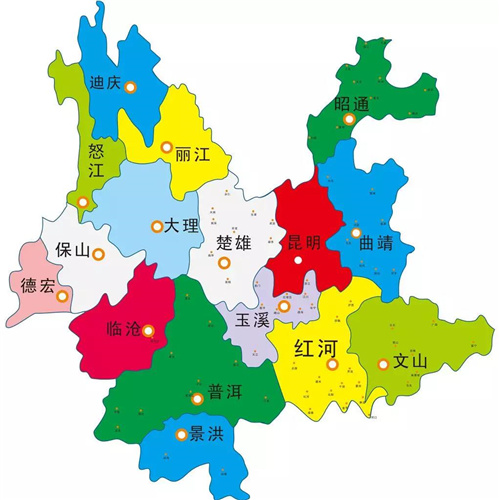
Pu'er, Xishuangbanna, Wenshan, Baoshan, Dehong, Lincang and other places in the south and west of Yunnan are all the distribution areas of small-grain coffee in Yunnan.
Dehong: it has the laudatory name of "hometown of Chinese coffee". The coffee planting in Dehong Prefecture is above 1000 meters above sea level, of which 30, 000 mu are planted in the mountains above 1600 meters above sea level. in addition, the coffee grown in Dehong Prefecture mainly uses organic fertilizers and organic pesticides, resulting in high quality coffee. it is one of the rare high-quality coffee producing areas in the world.
Baoshan: the cultivation of coffee in Baoshan began in the mid-1950s, and the first coffee seedling was introduced by the late patriotic overseas Chinese Mr. Liang Jinshan in Southeast Asia. In recent years, with the expansion of international trade, Lujiangba's small-grain coffee is more famous. Merchants in Europe, the United States, Egypt, Hong Kong and Macao, especially in Britain, the United States, Egypt, Hong Kong and Macao all regard it as top-grade coffee, and their products are in short supply. In December 2010, after being examined and approved by China's General Administration of quality Supervision, Inspection and Quarantine, it was decided to implement national geographical indication product protection for "Baoshan small Coffee".
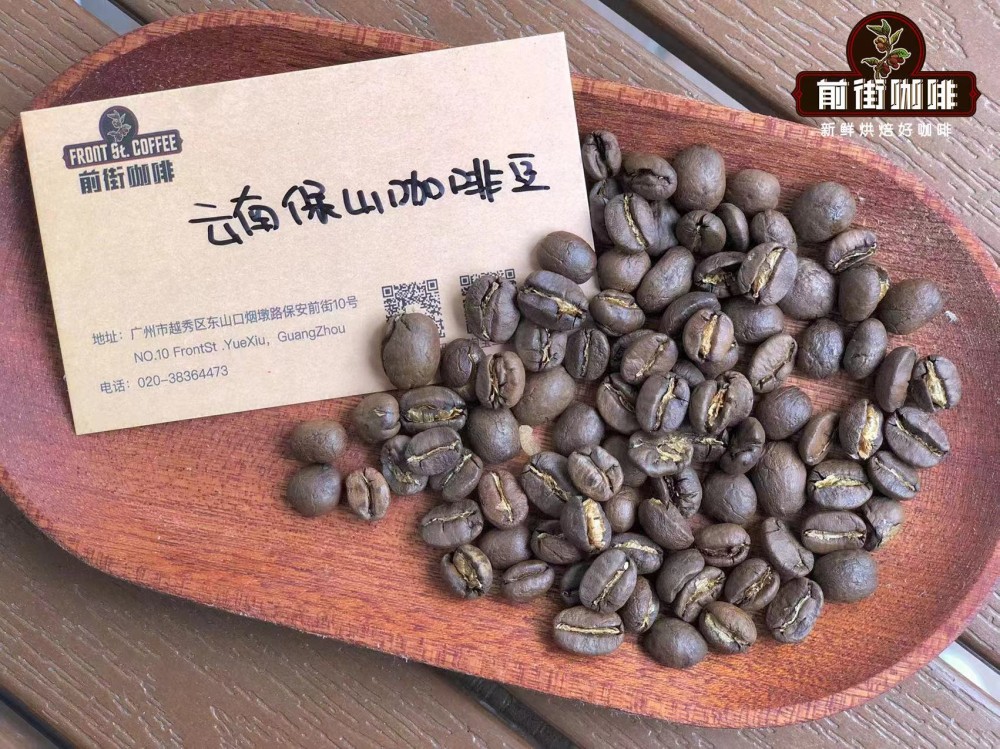
Lincang: because of its unique geographical location and climatic conditions, Lincang has become the focus of many coffee enterprises, and has successively established 200 mu and 100 mu of high-quality coffee breeding bases in Mengding Town and Lincang Happiness Farm in Gengma Autonomous County of the city. coffee is planted in Gengma, Zhenkang, Yun County, Cangyuan, Yongde and other places.
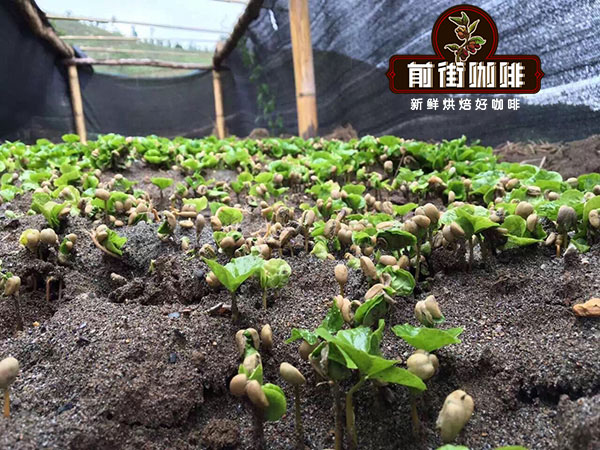
Qianjie Coffee has set up its own manor in Lincang, Yunnan Province. Qianjie bred iron card species, which is a pure Arabica species, which is better than the Katim species currently planted in Yunnan. It takes at least 4-5 years from the seedling to the first fruit, and this is also because the Katim species in Yunnan know that the flavor of the Katim species is inferior, and they are not willing to overthrow the re-planting. Qianjie produced the first batch of Yunnan coffee beans in 2020-21, named "Qianjie 2013", which was well received by everyone.
Pu'er: tea village Pu'er has cultivated coffee for 150 years. At the end of 1990s, Pu'er City began to cultivate coffee as a dominant backbone industry to adjust the industrial structure and increase farmers' income.
Yunnan coffee bean varieties
At present, Katim coffee beans are the most widely planted in Yunnan, while there are a small amount of iron pickup coffee beans and bourbon coffee beans in Baoshan area. Although they all belong to Arabica species on a large scale, these varieties are very different in nature.
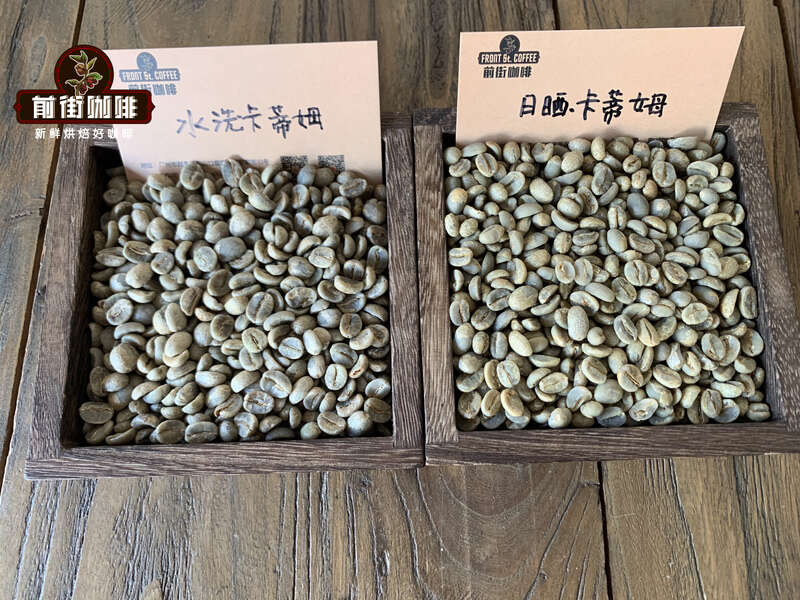
Katim Coffee Bean (catimor): Katim is a combination of Arabica and Robusta, which has good resistance to leaf rust and rich oil, high yield and easy to grow. After crossing with Arabica tin pickup, Katim has 25% robusta gene, which improves leaf rust resistance, retains rich oil, and has the rich taste of some original tin card species. So most Yunnan manors began to plant Katim on a large scale.
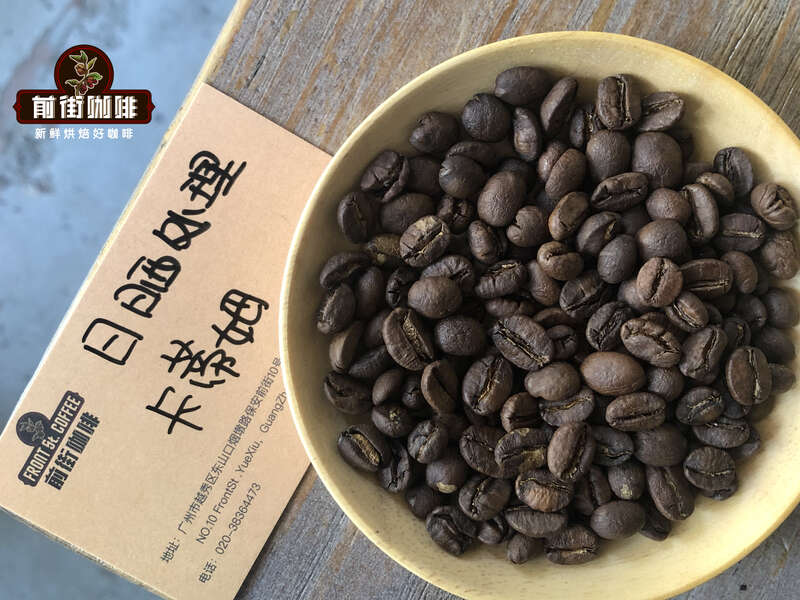
The reason why Yunnan does not grow Tiebika and bourbon varieties: Kadim is too cheap and can only be sold as a whole, about 15-20 yuan a kilogram, and the price is difficult to offset the picking work and fertilizer, and farmers are unwilling to take care of it. The output of iron pickup and bourbon is low and easy to get sick, and the cost of management and protection is high. it takes longer to explore, not to mention whether it can form a unique flavor. On the one hand, curry farmers do not have a sense of fine coffee. On the other hand, even if you know it, it will take a few years to cut down the old tree and replant it.
Iron pickup Coffee Bean (typica): the most classic high-quality Arabica species, many commercial improved varieties are derived from this. Iron pickup coffee beans have excellent taste and are recognized as a boutique coffee variety, but the yield is very low and vulnerable to rust, so more manpower management is needed. Iron pickup coffee beans are native to Ethiopia and southeastern Sudan and are the most widely cultivated variety of coffee in the Western Hemisphere. The plant is stronger, but not light-tolerant, and the yield is higher in Hawaii. The top leaf of the iron pickup is red copper, which is called red top coffee.
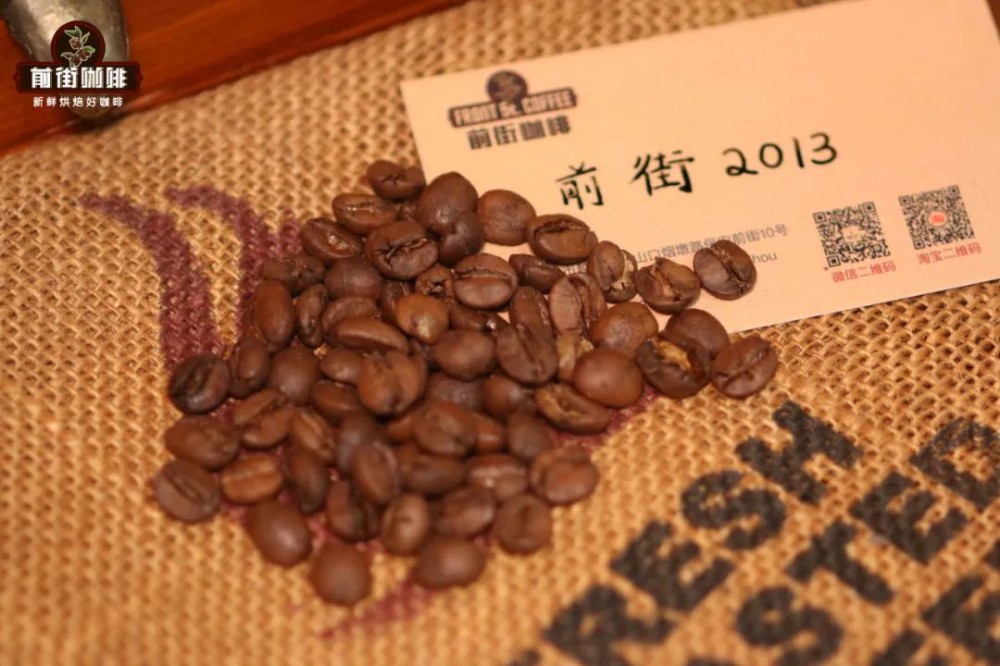
Bourbon Coffee Bean (bourbon): this variety is derived from the Iron pickup Coffee Bean, which was grown by the French on the island of Bourbon (now Reunion) in 1708. Bobang also has a beautiful aroma and rich flavor, which is higher in yield and growth than iron pickup trucks. It is suitable for planting in an area of 1200 million meters, but it is less resistant to diseases and insect pests and is more sensitive to strong winds and heavy precipitation. Bourbon coffee is a variety of small-grain coffee second only to iron pickup. At first, the main branch and trunk grew upward at 45 degrees, and with the fruit load, the lateral branches were denser, the fruit was more, and the yield was higher. But the berries are smaller and ripen more slowly. Bobang terminal bud tender leaves are green, called green top coffee.
Coffee bean treatment
Yunnan coffee has water washing treatment and sun treatment, whether it is sun treatment or water washing treatment, all have their own flavor. If possible, it is recommended to try it in front of the street.
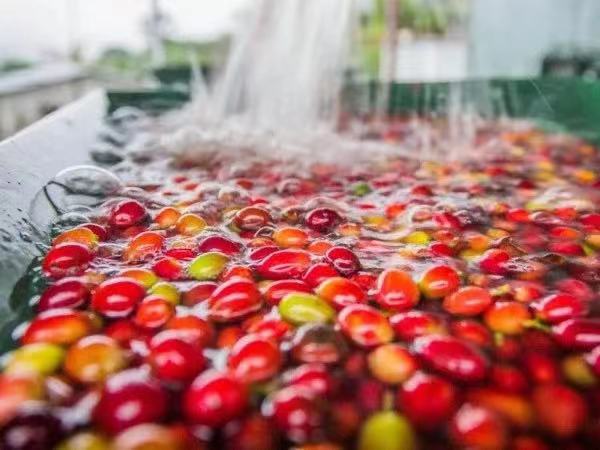
Washing treatment: coffee farmers first pour the picked coffee berries into a large tank, the immature inferior beans will float to the surface, and the mature and full fruits will sink to the bottom of the water, and the defective beans (fruits) floating on the surface will be removed. Then use the pulp sieving machine to remove the outer skin and pulp of the coffee fruit, when the coffee beans are still attached to a layer of slippery pectin. Put the coffee beans with pectin in the fermentation tank for 16 hours and 36 hours, during which the microbes will decompose the pectin. After the fermentation is completed, a large amount of water is used to remove the pectin residue from the coffee beans. Finally, the washed coffee beans are dried in the sun. The water washing method has both soft and strong acidity, suitable mellow, sweet and spicy.
Suggestion for Qianjie Coffee to brew Yunnan small Coffee
The V60 conical filter cup is recommended in the front street. V60 cup mouth is relatively large, coupled with its unique spiral curve ribs, so that the air can be discharged more easily to improve the extraction quality. The taste may not be thick enough, but its high concentration brings out the acidity and obvious aroma of Yunnan coffee is one of its major features.
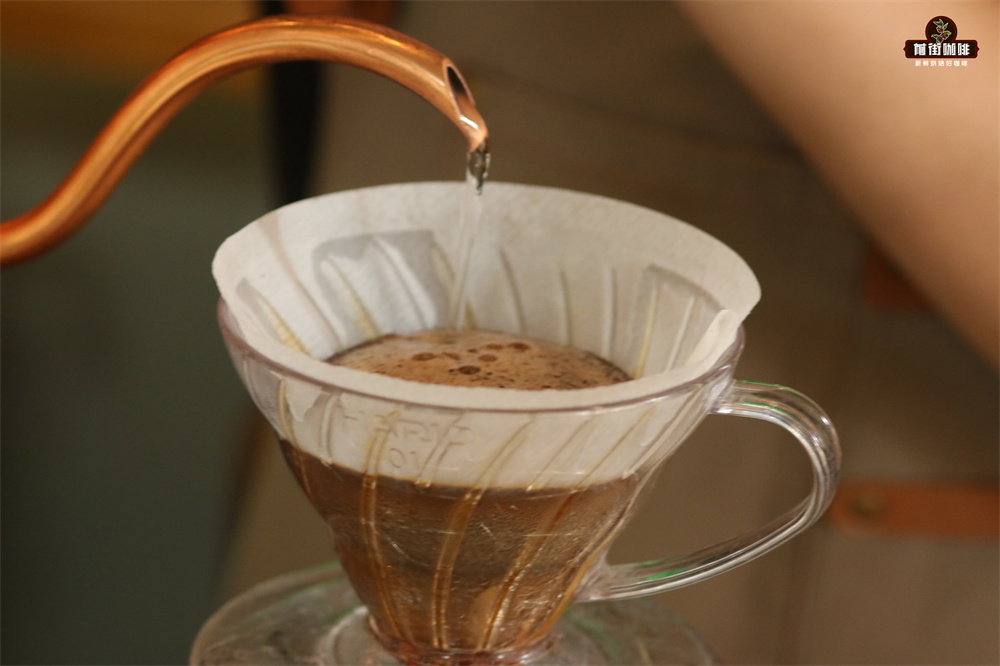
Filter cup: Hario V 60, water temperature: 88 ℃, powder content: 15g, ratio of powder to water: 1:15, degree of grinding: medium and fine grinding (Chinese standard No. 20 sieve pass rate 75%)
[Qianjie 2013Sun Iron pickup Coffee] has a thick, sour and sweet taste, with citrus and berry flavors, with a hint of fermented wine, caramel sweetness, creamy finish, black tea.
[Yunnan small Coffee Flavor] herbs, nutty, chocolate, caramel.
[sunburn Yunnan Katim Coffee] Flavor performance: nuts, chocolate, spices, caramel, plums.
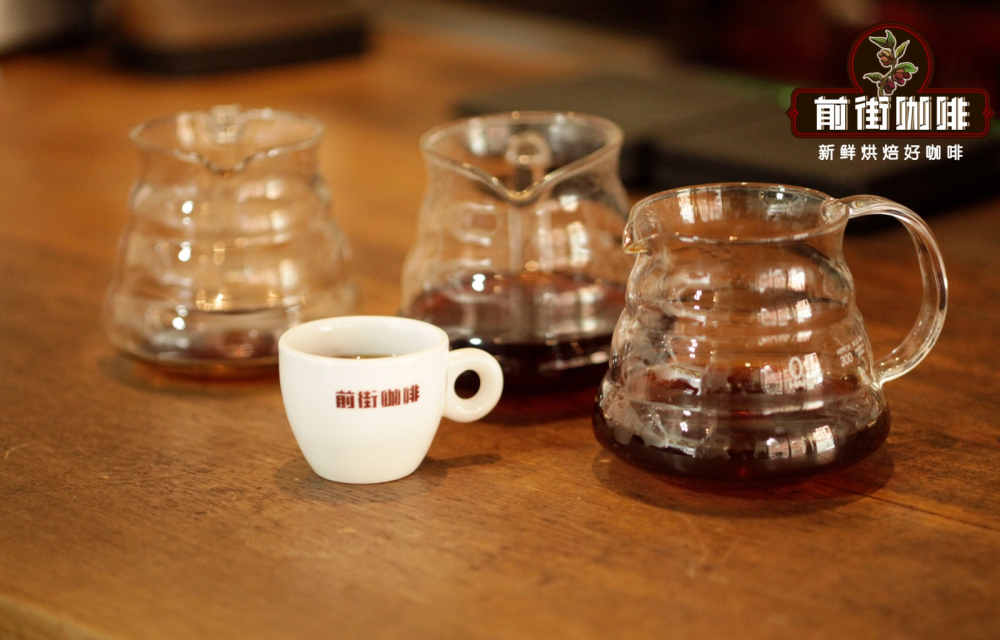
Suggestion on brewing coffee in Qianjie
If you want to make a good cup of coffee, in addition to the variety of coffee, there is also the freshness of coffee beans. Qianjie believes that the freshness of coffee beans is a very important part of brewing. The coffee beans shipped in Qianjie are all roasted within 5 days, because Qianjie is well aware that the freshness of coffee beans has a great impact on the flavor. The purpose of Qianjie roasting is "freshly roasted coffee", so that every guest who places an order is the freshest coffee when he receives it. The bean cultivation period of coffee is about 4-7 days, so when the guest gets it, it is the time when the flavor is the best.
Of course, there are some customers who need help grinding powder in front of the street, which doesn't matter, but Qianjie has to warn: if the coffee beans are ground ahead of time, there is no need to raise the beans, because in the process of transportation, the pressure caused by carbon dioxide in the package can also make the coffee flavor mellow, so when you receive the coffee powder, you can immediately make a cup of coffee drink. But the coffee powder needs to be brewed in time, because the coffee powder oxidizes more quickly after contact with the air, that is to say, the flavor of the coffee will dissipate more quickly, and the flavor of the coffee is not so good. Therefore, Qianjie suggests buying whole beans, grinding and flushing now, so that we can better taste the flavor of coffee.
Professional coffee knowledge exchange more coffee bean information please follow the coffee workshop (Wechat official account cafe_style)
For more boutique coffee beans, please add private Qianjie coffee on Wechat. WeChat account: qjcoffeex
Important Notice :
前街咖啡 FrontStreet Coffee has moved to new addredd:
FrontStreet Coffee Address: 315,Donghua East Road,GuangZhou
Tel:020 38364473
- Prev

Boutique Coffee learn how to distinguish between genuine and fake Blue Mountain Coffee
The real Blue Mountain Coffee perfectly combines the sour, bitter, sweet and mellow flavors of coffee, so that other coffees are unmatched. Therefore, Blue Mountain Coffee is generally drunk in the form of black coffee. Coffee lovers generally think that Blue Mountain Coffee is the best coffee in the world, and Blue Mountain is definitely one of the most expensive coffee in the world. The classic balance of Blue Mountain Coffee is indeed
- Next
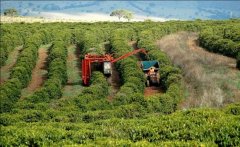
Brazilian half-sun natural pectin removal method volcano treatment
Brazil used to use the method of tanning in the past, and there was a big difference in quality, which made Brazil Chongqing synonymous with low-to-middle quality. However, in order to improve its quality and reverse its image, the world's largest coffee producer carried out a quality revolution in the 1990s and vigorously promoted the global half-sun method. Brazilian coffee fields are endless and are mostly harvested mechanically in order to meet the economic benefits. When 75% of the coffee fruit in the coffee garden
Related
- Detailed explanation of Jadeite planting Land in Panamanian Jadeite Manor introduction to the grading system of Jadeite competitive bidding, Red bid, Green bid and Rose Summer
- Story of Coffee planting in Brenka region of Costa Rica Stonehenge Manor anaerobic heavy honey treatment of flavor mouth
- What's on the barrel of Blue Mountain Coffee beans?
- Can American coffee also pull flowers? How to use hot American style to pull out a good-looking pattern?
- Can you make a cold extract with coffee beans? What is the right proportion for cold-extracted coffee formula?
- Indonesian PWN Gold Mandrine Coffee Origin Features Flavor How to Chong? Mandolin coffee is American.
- A brief introduction to the flavor characteristics of Brazilian yellow bourbon coffee beans
- What is the effect of different water quality on the flavor of cold-extracted coffee? What kind of water is best for brewing coffee?
- Why do you think of Rose Summer whenever you mention Panamanian coffee?
- Introduction to the characteristics of authentic blue mountain coffee bean producing areas? What is the CIB Coffee Authority in Jamaica?

